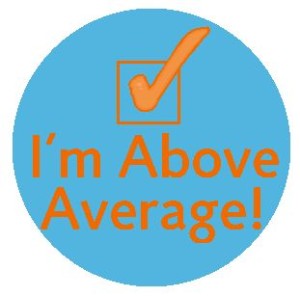Can you defend yourself better than the average person? Most likely you think you can. Most Americans think that he or she is more intelligent, a better driver, and generally more competent than average.
Interestingly, people with the lowest abilities tend to be the most likely to over-estimate their abilities, while people with the highest abilities tend to be the most likely to under-estimate their abilities.
For more on this phenomena, see the paper, titled “Unskilled and Unaware of It: How Difficulties in Recognizing One’s Own Incompetence Lead to Inflated Self-Assessments” by David Dunning and Justin Kruger.
Your Defend-Score is an indication of how well are your able to defend yourself from human threats, and deal with conflicts and confrontations.
Please answer the following questions using a scale of 0 – 10. Where:
- 0 = No ability at all
1 = Negligible ability
2 = Minimal ability - 3 = Low Ability
- 4 = Low/Moderate ability
- 5 = Moderate ability
6 = Moderate/High ability
7 = High ability
8 = Very high ability
9 = Almost absolute ability - 10 = Absolute ability
Initial Baseline:
Please rate your overall defend ability on a scale of 0 – 10.
Defend-Questions:
The following questions make up your Defend-Score.
- When talking with a stranger, rate your ability to determine whether this person has bad intention.
- When on a date, rate your ability to diagnose if your date possibly has an anti-social personality disorder.
- Rate your ability to distinguish between potentially dangerous fringe areas and safe areas.
- Rate your ability to discover alternate exits and means of escape when indoors.
- If someone is approaching you, rate your ability to deduce whether he or she is a potential mugger.
- Rate your ability to differentiate between social and asocial violence.
- Rate your ability to discuss the difference between resource predators and process predators.
- When feeling physically threatened, rate your ability to decide when it is time to take immediate action.
- When dealing with other people, rate your ability to delineate your personal boundaries.
- When dealing with people who have violated your boundaries, rate your ability to display your displeasure.
- Rate your ability to explain the difference between a static and dynamic threat assessment.
- Rate your ability to describe criminal behavior in terms of the Five Stages of Violent Crime or a similar model on criminal methodology.
- Rate your understanding on why it is common for people to engage in denial when faced with a life threatening situation.
- Rate your understanding on why it is common for people to delay acting when faced with a life threating situation.
- Rate your understanding on why it is common for people to do nothing, when faced with a threatening situation.
- When involved in a face to face confrontation, rate your ability to detect pre-assault cues and indicators.
- When in public spaces, rate your ability and willingness to detour around potentially dangerous situations.
- When in public spaces, rate your ability to deter potential assaults from asocial predators.
- When involved in a verbal social conflict, rate your ability to defuse the situation.
- When threatened by another person in a social situation, rate your ability to de-escalate the threat.
- When involved in a heated confrontation, rate your ability to diminish the interference of your emotions from your cognitive processes.
- When involved in a confrontation, rate your ability to discriminate your personal bias and viewpoint from actual events.
- When encountering an unknown situation, rate your ability to divine the warnings of intuition from unwarranted fears.
- Rate your ability to distract another person in order to launch a pre-emptive strike.
- When in a physical conflict with another person, rate your ability to debilitate him or her.
- When in a physical conflict with multiple people, rate your ability to disrupt their intentions.
- When in a physical conflict with another person, rate your ability to cause damage to his or her combative ability.
- When in a potentially deadly conflict with another person, rate your ability to devastate his or her ability to continue to attack.
- When absolutely necessary, rate your ability to destroy an assailant before he or she attacks you.
- When involved in a potentially dangerous conflict, rate your ability to deceive the other person in order to gain an advantage.
- When involved in a conflict, rate your ability to know when to disengage from the situation.
- After an incident of a physical assault, rate your ability to debrief the police on what happened.
- After an incident of physical self-defense, rate your ability to document your legal use of force in a court of law.
- Rate your understanding of how legal use of force decisions are made by individuals during threats, conflicts, and confrontations.
In order to determine your Defend-Score, please total all your numerical responses and divide by 34. The result is your Defend-Score. How does your calculated Defend-Score compare to your Initial Baseline?
Do you consider your ability to be better or worse than the median?
